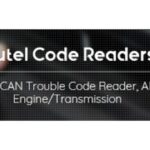For owners of a 2014 Chevy Silverado looking to take a more proactive approach to vehicle maintenance and understand what’s happening under the hood, investing in the right OBD2 software is a smart move. Understanding your truck’s diagnostic data can empower you to make informed decisions about repairs and maintenance, and ensure you’re getting honest service.
The world of OBD2 software can seem complex, ranging from basic code readers to advanced diagnostic systems. For Silverado owners, starting with a simple tool like the AL319 or its updated versions is a great entry point. These affordable devices allow you to read basic trouble codes, giving you a preliminary understanding of potential issues. However, for a deeper dive, especially if you want to verify a mechanic’s diagnosis or undertake more complex repairs yourself, you’ll need more comprehensive resources.
For detailed repair information specific to your 2014 Silverado, consider accessing the same resources that professional mechanics use. GM Service Information provides manufacturer-level data, offering in-depth diagnostic flow charts and repair procedures directly “from the horse’s mouth.” Alternatively, AlldataDIY offers a subscription service with a wealth of repair information. While MitchellDIY is another option, it’s often noted to be less comprehensive. These resources empower you to go beyond simply reading codes and truly understand the necessary repairs.
When it comes to selecting an OBD2 scan tool with more advanced capabilities, the Diaglink is often recommended for GM vehicles, offering significant functionality within a reasonable budget. For those invested in working on various makes beyond GM, a professional-grade scan tool like the Launch Diagun provides broad capabilities without recurring subscription fees, similar in cost to the Diaglink. For dealer-level diagnostics specifically for GM, consider a J2534 pass-through cable combined with a GM service subscription, though this is generally for more advanced users.
It’s crucial to remember that while OBD2 software and scan tools are invaluable, they are not a complete substitute for knowledge and experience. Understanding the data, interpreting diagnostic flow charts, and having hands-on experience are essential for accurate diagnostics and effective repairs. Don’t fall into the trap of thinking a trouble code alone tells the whole story. Use OBD2 software as a tool to learn and verify, but always prioritize gaining genuine automotive knowledge or finding a trustworthy mechanic who can provide expert insights for your 2014 Silverado.
